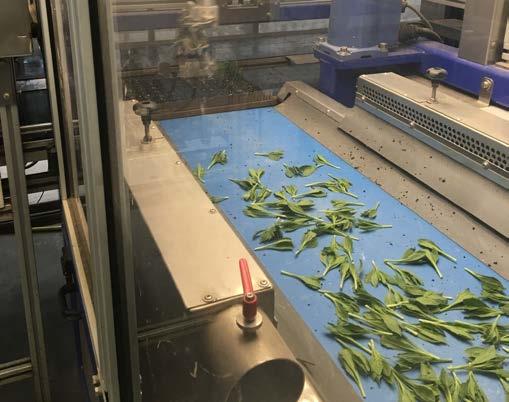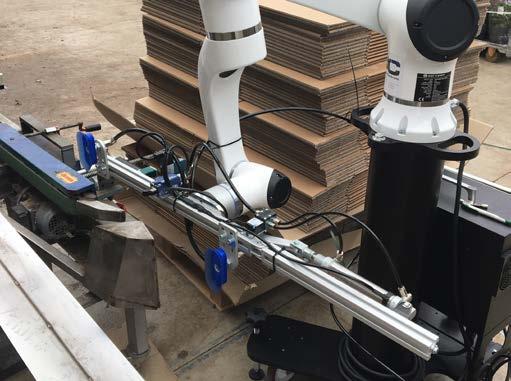
3 minute read
Embracing automation
How have nurseries in the Netherlands embedded automation and robotics in their businesses? Wayne Brough, AHDB Knowledge Exchange Manager, went and found out.
Nursery production systems have evolved over time in response to ever-changing influencing factors, including available technologies, environmental legislation and customer demand. With the increased availability of robotics and automation, many UK businesses have automated single tasks or several closely related tasks. A classic example of this has been the rise of the automated transplanter, which has become a standard feature in many nurseries. But is looking at the whole nursery production system, rather than individual tasks, a better approach? Looking at the system as a whole has definitely reaped rewards at several large bedding and pot plant nurseries in the Netherlands, which have taken a strategic approach to automating their businesses.
Advertisement
PERRY VAN DER HAAK Perry van der Haak is a specialist pelargonium nursery based near Gravenzande. The nursery is entirely designed around automated bench movement. Within their new 3.2 ha site, the 4,000 production benches are controlled by a sophisticated software system that allows individual bench movement to be controlled throughout production and dispatch, either from the office computer or via mobile phone. The system, installed by Codema, minimises the time staff spend moving around endless batches of plants. Plants can also move more easily through the various production zones to the dispatch area, which is located on a mezzanine floor in the glasshouse.
ZUIDBAAK NURSERY This business, which is similar to a typical UK production nursery, has achieved a joined-up approach to nursery automation on a relatively small budget. Powered shovels and conveyors move bulk-growing media to the production lines. Transplanting occurs via a TTA transplanter, while a continuously moving chain pulley system, embedded in the concrete paths, automatically moves plants around the nursery on trolleys. Plants are placed onto beds (and lifted) in bulk by several large, manually operated, powered forks. An irrigation tunnel can water several trolleys of plants at a time, prior to dispatch.
WOUTERS NURSERY Wouters has again taken a whole-nursery approach to automation. A buggy or trolley system wirelessly follows a signal cable in the concrete path. A large, bed-sized, spacing machine spaces plants directly on beds. A Danish trolley shelving machine creates the necessary number of trolleys for dispatching the finished product.
BEEKENKAMP Some businesses use intensive automation at key production stages. The young plant producer Beekenkamp has numerous seeding, sticking and gapping-up machines within their production lines, including ‘next-generation’ sticking equipment from ISO Group Agri. Although their sister company, Deliflor, has used similar sticking machines for years, to stick chrysanthemum cuttings into peat blocks, the next-generation robotic arm can now handle various cutting materials. The latest model can be converted from a sticking machine to a transplanting machine with a change of heads.
GEBR. GROOTSCHOLTEN NURSERY Rather than move equipment to beds, at Gebr. Grootscholten plants on benches are moved to the machines where they are graded and spaced, while still on the benching. Not all innovation needs to be complex and expensive. This nursery also has home-made mobile seats for the staff who clean floor-grown crops by hand, to help minimise back stress.
BAAS NURSERY Not all automation focuses on the production phase. At Baas Nursery, a prototype box-making robotic arm was being put through its paces on the dispatch line, prior to potential commercial installation. Wayne visited these nurseries as part of the SmartHort and Bedding and Pot Plant Centre automation study tour group, organised by AHDB and BOPA. Many thanks to all the nurseries who hosted the tour.
Figure 3. Bed-wide spacing machine employed at Wouters Nursery


Figure 4. The ISO Group sticking machine in action, handling Osteospermum cuttings at Beekenkamp











